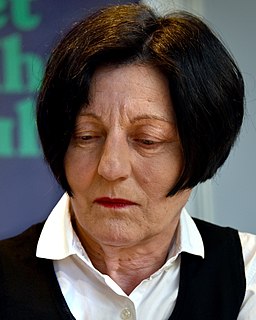A Quote by Jean Craighead George
My writing process is a mix of research, personal experiences, washing the dishes, raising kids while thinking - then writing.
Related Quotes
My normal writing day involves three hours of actual writing, before noon, and the rest is just feeding the writing. There is teaching (so I can afford to write), travel to be planned and executed. There are dozens of emails daily, gardening, lots of dishes (where do all these dishes come from?), daily family emergencies, and, of course, the petting of the donkeys. The smell of donkeys is heavenly, and their he-honking is the sweetest music. I feel calm just thinking about them.
My books are based on the "what if" principle. "What if you became invisible?" or "What if you did change into your mother for one day?" I then take it from there. Each book takes several months in the long process of writing, rewriting, writing, rewriting, and each has its own set of problems. The one thing I dislike about the writing process is the sometimes-loneliness of it all. Readers only get to see the glamour part of a bound book, not some of the agonizing moments one has while constructing it.
The process of writing fiction is totally unconscious. It comes from what you are learning, as you live, from within. For me, all writing is a process of discovery. We are looking for the meaning of life. No matter where you are, there are conflicts and dramas everywhere. It is the process of what it means to be a human being; how you react and are reacted upon, these inward and outer pressures. If you are writing with a direct cause in mind, you are writing propaganda. It's fatal for a fiction writer.
It is a bit more challenging for the simple fact that now the stories I am writing are relying more on my imagination than on facts, more on research than on memory; so it is basically a slower writing process, more reading, more exploring. On the other hand, this approach is a little bit relieving too, since many times while writing [How the Soldieer Repairs the Gramophone] I felt too close and equal to my character.






































